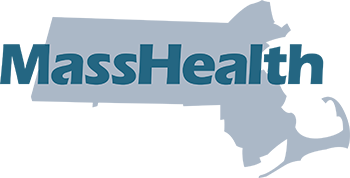Massachusetts has an “individual health insurance mandate” which requires most adults to carry health insurance if it is affordable to them and that meets certain coverage standards (referred to as “Minimum Creditable Coverage” or MCC). The Massachusetts Health Connector sets the coverage and affordability standards, and the Massachusetts Department of Revenue (DOR) requirement to have health insurance(not the federal Affordable Care Act).
Background of the Individual Mandate
Since the passage and implementation of the state’s 2006 health reform law, Massachusetts has achieved and maintained the highest level of insurance coverage in the nation. The individual mandate is one aspect of the shared responsibility among government, employers, and individuals that drove this success. The individual mandate requires adults to carry health insurance if it is affordable to them and meets the Commonwealth’s coverage standards, known as Minimum Creditable Coverage (MCC).
Minimum Creditable Coverage (MCC)
Minimum Creditable Coverage (MCC) refers to the minimum level of benefits that adult tax filers need to carry to be considered insured and avoid tax penalties in Massachusetts.
For most plans, MCC standards include:
- Coverage for a comprehensive set of services (e.g., doctors’ visits, hospital admissions, day surgery, emergency services, mental health and substance abuse, and prescription drug coverage)
- Doctor visits for preventive care, without cost-sharing
- A cap on annual deductibles
- An annual maximum on out-of-pocket spending for plans with up-front deductibles or co-insurance on core services
To be considered MCC, a health plan:
- May not have caps on total benefits for a particular illness or for a single year
- Please see the most recent administrative bulletin regarding Minimum Creditable Coverage Regulations for all annually indexed limits
How to Know if Your Plan Meets MCC
Massachusetts-licensed health insurance companies must put an MCC-compliance notice on plans sold in Massachusetts to indicate if the plan does or does not meet MCC. Most plans sold in Massachusetts meet the MCC standards.
Every year in January, insurers send Form MA 1099-HC to indicate whether insurance met MCC requirements and the months in which an enrollee was covered. Taxpayers should save this Form 1099-HC and use it when filing their state taxes.
Below is a list of plans that automatically meet MCC requirements:
- Medicare Part A or B
- Any ConnectorCare plan
- Any Health Connector plan
- MassHealth, except MassHealth Limited
- A Catastrophic Health Plan
- A qualified Student Health Insurance Program (SHIP) offered by a Massachusetts college or university
- A tribal or Indian Health Service plan
- TRICARE
- The U.S. Veterans Administration Health System
- Peace Corps, VISTA, or AmeriCorps or National Civilian Community Corps coverage
- Any health arrangement provided by established religious organizations comprised of individuals with sincerely held beliefs provided certain standards are met. Learn more →
MCC Requirements for All Other Plans
A plan must cover a broad range of medical services, limit a subscriber’s out-of-pocket costs, and impose no limits on certain benefits. Please read the specific MCC requirements (PDF).
MCC Certification for Employers, Unions, Plan Sponsors and Insurers
Employers, unions, plan sponsors, and insurers can apply for MCC Certification if they have a comprehensive plan that does not quite meet all MCC requirements. They must identify how the plan deviates from the MCC standards. The relative value of the benefits should be at least comparable to a Bronze-level Health Connector, Qualified Health Plan (QHP). You must call 617-933-3030 if you plan to file fifty or more applications.
*A note on High Deductible Health Plans (HDHPs) – PDF
Administration and Enforcement of the Individual Mandate
Taxpayers are required to report whether they were insured by completing a form called a Schedule HC, Health Care Information, when they file their state taxes with the Massachusetts Department of Revenue. To assist taxpayers in completing Schedule HC, insurers (including MassHealth), the Massachusetts Health Connector, and certain employers, are required to provide Form MA 1099-HC statements by January 31. These forms will have the necessary information to complete Schedule HC.
If an individual has been insured throughout the year in a plan that meets MCC standards and they report full-year coverage on the Schedule HC, they will not be subject to a penalty.
If an individual has more than three consecutive months without coverage, they will have to complete additional parts of the Schedule HC to determine.
Gaps in Coverage
Individuals can have up to three consecutive months without penalty. Thus, taxpayers who lose coverage but then regain coverage within three or fewer consecutive calendar months will not be subject to penalties for lack of health insurance coverage.
Affordable Coverage
If an individual reports being uninsured for all or part of the year, and they had access to affordable coverage, they may be subject to a penalty. The Health Connector sets an “Affordability Schedule” each year, which shows the maximum monthly premium that an individual could afford to pay for insurance. The affordable premium varies for each income bracket. If an individual could have purchased coverage meeting MCC standards for a monthly premium that is equal to or less than the amount deemed affordable, then the individual may be subject to a penalty.
The Schedule HC will ask taxpayers who did not have coverage to provide information to determine if they were eligible for government-subsidized insurance or affordable insurance offered by their employer. (Remember, “affordability” for the purpose of the individual mandate penalty is based on a specific state affordability calculation — the Schedule HC instructions will help you determine affordability). If neither of those options was available, the taxpayers will be directed to check a table of premiums for the lowest-cost coverage available through the Health Connector in the tax year. If the premium that the taxpayer would have to pay for that coverage is greater than the amount the taxpayer is considered able to afford, then the taxpayer will not have to pay a penalty. However, if the premium for coverage is equal to or less than the amount the taxpayer could afford, then the taxpayer could have purchased that insurance and may be liable for a penalty.
Penalties for Tax Year 2024 for Non-Compliance with the Individual Mandate
For individuals who are determined liable for a tax penalty for non-compliance with the state’s individual mandate, the below penalty schedule applies.
| Individual Income Category* | Penalty |
| 150.1-200% FPL | $24/month $288/year |
| 200.1-250% FPL | $48/month $576/year |
| 250.1-300% FPL | $71/month $852/year |
| 300.1-400% FPL | $109/month $1308/year |
| 400.1-500% FPL | $127/month $1,524/year |
| Above 500% FPL | $175/month $2,100/year |
* Compare the individual’s annual family household income to the chart immediately below to determine the applicable Federal Poverty Level (FPL).
** Yearly penalty amounts listed above are based on non-compliance for the entire year.
Federal Poverty Level – Annual Income Standards
| Household Size | 150% | 200% | 250% | 300% | 400% | 500% |
| 1 | $21,870 | $29,160 | $36,450 | $43,740 | $58,320 | $72,900 |
| 2 | $29,580 | $39,440 | $49,300 | $59,160 | $78,880 | $98,600 |
| 3 | $37,290 | $49,720 | $62,150 | $74,580 | $99,440 | $124,300 |
| 4 | $45,000 | $60,000 | $75,000 | $90,000 | $120,000 | $150,000 |
| 5 | $52,710 | $70,280 | $87,850 | $105,420 | $140,560 | $175,700 |
| 6 | $60,420 | $80,560 | $100,700 | $120,840 | $161,120 | $201,400 |
| 7 | $68,130 | $90,840 | $113,550 | $136,260 | $181,680 | $227,100 |
| 8 | $75,840 | $101,120 | $126,400 | $151,680 | $202,240 | $252,800 |
| For each additional person, add: | $7,710 | $10,280 | $12,850 | $15,420 | $20,560 | $25,700 |
*This schedule reflects the 2023 Federal Poverty Level standards for 2024 eligibility. (Source)
Information on Appealing a Penalty
You can appeal the penalty if you are subject to a tax penalty because you could have afforded insurance but didn’t purchase it, but still believe that you could not have purchased insurance due to a hardship or other circumstances. Instructions for the Schedule HC provide information on grounds for appeals. Please read the Schedule HC Instructions carefully if you want to appeal.
If you appeal, you must fill in the oval requesting the appeal on the Schedule HC. The appeal will be heard by the Massachusetts Health Connector. You will receive a follow-up letter from the Health Connector asking you to state your grounds for appeal in writing and submit supporting documentation. Failure to respond to that form within the specified time frame will lead to dismissal of your appeal. You may be required to attend a hearing on your case in person or by telephone. No penalty will be imposed by DOR pending the outcome of your appeal. If your appeal is denied by the Health Connector, you will receive a bill from DOR.






